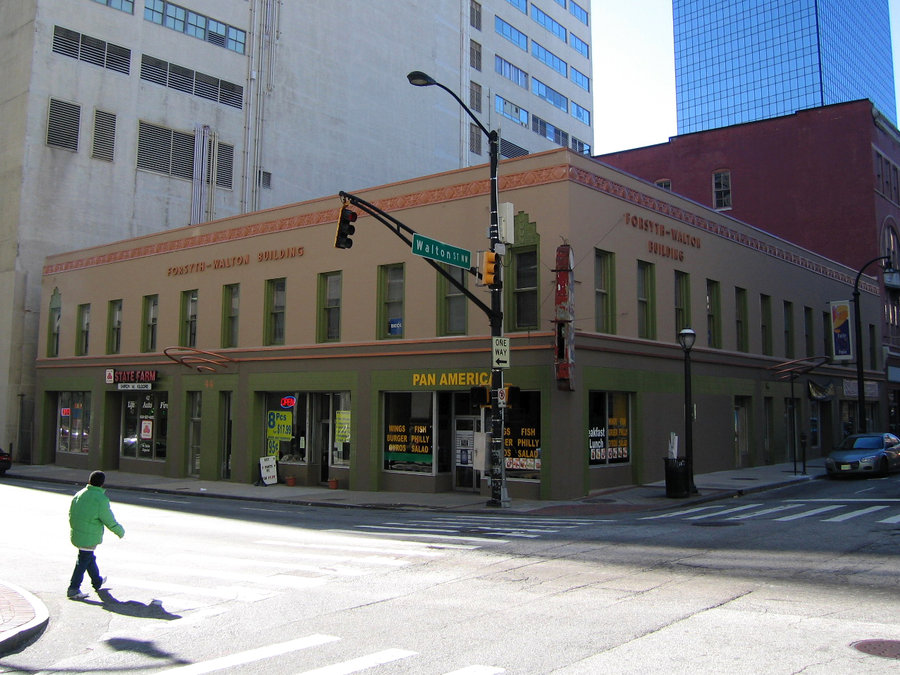On a recent trip to New Orleans I ran across one of the best Atlanta history coffee table books I’d ever seen. I ended up purchasing the book, and, in doing so, a something dawned on me: SIF is a way of life.
Combing through this book could seem like work to some, but to me it was fun. I thought about asking my SIF bosses to reimburse me for the cost of the book, but then I realized I’d have to give up the book! I understood then that I wanted to keep the it for myself, that I’d bought it for me and for my interests alone.
The book contains a detailed “Atlanta Timeline” and lists the architects behind many of Atlanta’s historic landmarks. In a recent podcast with Tim Keane, Atlanta’s new Commissioner of Planning and Community Development, the Commissioner remarks that we need Atlanta to be a reflection of itself, not a reflection of other places. What this means is new construction should draw influence from Atlanta’s post Civil War construction–that we allow the work of early architectural pioneers in this city, many of them Georgia Tech graduates, to shape our city for centuries to come. As we continue to grow Atlanta, it’s great to look for what makes Atlanta unlike other places.
Spending time in New Orleans, I often made the joke that if the French Quarter was in Atlanta we would have demolished it decades ago in an attempt to revitalize the “blighted” area. And it’s true. Anything in this city that once was compared to New Orleans has met the ill fate of a wrecking ball. Decatur street, once described as Atlanta’s bourbon street in the 1930’s was completely demolished, eventually replaced by Georgia State and the highway. Underground Atlanta gained a similar notoriety, but by the 80’s was re-purposed as a gimmicky pedestrian mall. In Atlanta’s unrelenting quest for growth several landmark districts were demolished, re-imagined and re-built.
However, the preservation in New Orleans comes with a harsh side-effect, stunted growth. New Orleans seems to struggle to find major footing as an economic hub. For example, though 23 Fortune 500 companies have headquarters in Atlanta, just one resides in New Orleans. But, New Orleans is in love with itself. The civic pride in New Orleans is astonishing. By one measure, walking around the city on a Saints game day, it isn’t hard to tell who the town rooting for!
Atlanta does not have this level of civic participation. A lot of people in Atlanta hate the city. In order for this to change, Atlanta needs to come to terms with itself, and embrace its true identity. Atlanta does not need to be a reflection of someplace else, as Commissioner Keane put it. This is hard to do especially in a town like Atlanta, because, simply, Atlanta is a marketing scheme. As a 1996 New Yorker article so aptly puts it, “If New York is the ‘Big Apple’ and New Orleans is the ‘Big Easy,’ Atlanta is the ‘Big Hustle.” The very name of this city was coined by a business person. Henry Grady, one of the first who articulated and promoted the “Atlanta Spirit,” a spirit of growth, commerce and industry, was essentially a salesperson for Atlanta. It’s hard to tell this now; his name is so commonplace he barley seems to have been an actual person.
The demolition of Atlanta still continues today. Most major landmarks have already been destroyed and now they’re coming for smaller structures. The historic Bell Building is being threatened by our own alma mater, and just last night I learned that the Art Deco beauty that’s stood on the corners of Forsyth and Walton for 80 years is in danger as well. Atlanta has done well in terms of growth, but who will save her from total demolition?
Image source: http://wiebkefesch.deviantart.com/art/Forsyth-Walton-Building-2-156492159
